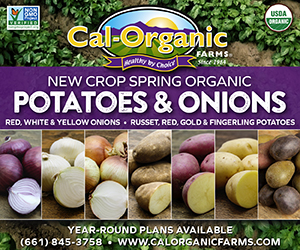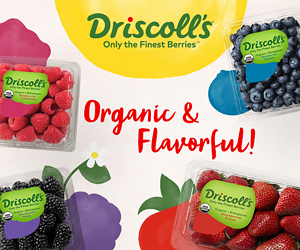Since its founding in 1972, the International Federation of Organic Agriculture Movements / IFOAM – Organics International has been the only international umbrella organization for the organic industry, from field to consumer.
The organization boasts over 1,000 affiliates in more than 120 countries and holds a general assembly every three years to “unify, lead, and assist” their broad-based constituency.
At every general assembly, members elect ten individuals to serve on the IFOAM World Board. The board plans the direction of the organization’s work and appoints affiliates to committees, working groups, and task forces on topics such as organic standards development and facilitating organic agriculture in developing nations.
Since 2010 Peggy Miars is the executive director and CEO of the international nonprofit Organic Materials Review Institute (OMRI). In November 2017 at IFOAM’s general assembly in New Delhi, India, she was elected president of the IFOAM World Board.
Peggy Miars is the executive director and CEO of the international nonprofit Organic Materials Review Institute (OMRI)
“Leading Change, Organically,” the 2017 Consolidated Annual Report of IFOAM – Organics International, outlined their global vision, Organic 3.0. The principles of “unity in diversity,” “inclusiveness,” and “moving beyond the niche” are foundational to the organization’s daily decision-making. In the report Miars emphasized, “We don’t want to be measured only by whether organic is trustworthy and complies with standards. We want to be effective in mitigating climate change, in maintaining biodiversity, and in improving nutrition for all, particularly smallholder farming families. We will achieve this impact with farming that is based on the science of agroecology.”
The report provides insight into the scope of the organic industry worldwide. With 57.8M hectares of farmland in organic production, there are 2.7M organic farmers worldwide, producing in over 178 countries. Organic consumer purchases are $80B and increasing every year.
Miars says it’s important that North American producers be attentive to organic global growth, and health of the movement. Miars said “With our worldwide economy and global trade, North American producers need to be aware of what’s happening around the world. We have heard of fraudulent organic grains that were imported from Turkey and Eastern Europe, and the USDA has thankfully taken steps to address that. The EU is concerned about U.S. certified organic hydroponic operations, which will likely impact the equivalency arrangement. These examples show that even if organic producers sell only in their local markets, global news and consumer perceptions will impact their businesses.”
How IFOAM will pursue its three-way goal of boosting the growth of the global organic sector, making it more sustainable, and providing inspiration to mainstream agriculture was outlined by Markus Arbenz, IFOAM’s executive director, in the annual report. They intend to:
- Enhance supply through capacity development of operators and other value chain actors.
- Stimulate demand with communication support and awareness campaigns.
- Advocate for a policy and guarantee environment that is conducive to sustainable production and consumption.
Miars elaborated on what this looks like in terms of real action steps. “IFOAM – Organics International has been working in these areas for decades. Now we are putting specific focus on these areas in our strategic plan. We will continue to work with organic operators, with a focus on smallholder farmers in developing countries, to expand their businesses and marketing capabilities. Our new communications strategy will reach like-minded organizations and multipliers who will help carry our messages to those who may not have heard them yet. IFOAM has a strong advocacy program that influences and assists governments and other international bodies, such as the United Nations, to develop policies that support IFOAM’s Principles of Organic Agriculture,” she said, encompassing health, ecology, fairness, and care.
IFOAM continues to address weighty issues including organic aquaculture, new breeding techniques, and advocating for true cost accounting. Their working group drafted key guidance on aquaculture system boundaries, paving the way for a thorough practice standard. They developed a position paper identifying all of the technical and strategic aspects of the new genetic breeding techniques, to protect organic from this complex and disruptive phenomenon. IFOAM is advocating for true cost accounting by developing a common framework to incentivize truly sustainable practices and policies.
Miars underscored why these initiatives are important to North American producers. “In North America, we debate and struggle with the same issues as producers around the world. I attended many National Organic Standards Board meetings in which organic aquaculture, genetic engineering, and other topics were the same as issues being discussed in other countries," Miars said.
“IFOAM – Organics International is a federation of organizations supported by individuals. Organic farmer and consumer organizations can support their own members by participating in IFOAM’s activities, and individuals who want to support the global organic movement can do so with donations. I have learned so much in my time on the IFOAM World Board and hope that I can help others to see how organic is practiced and embraced across the world,” Miars said.






